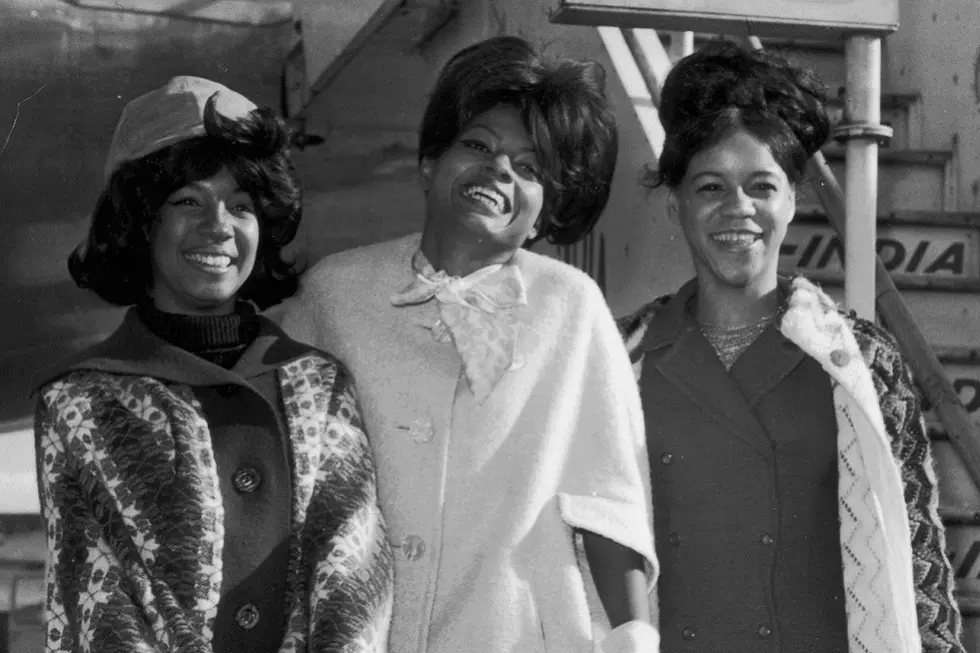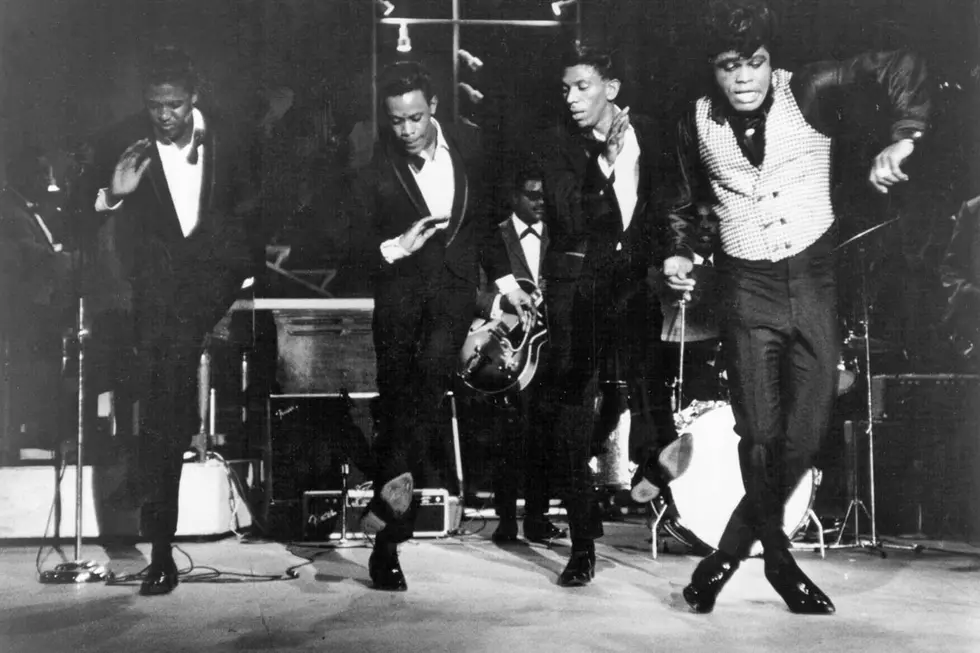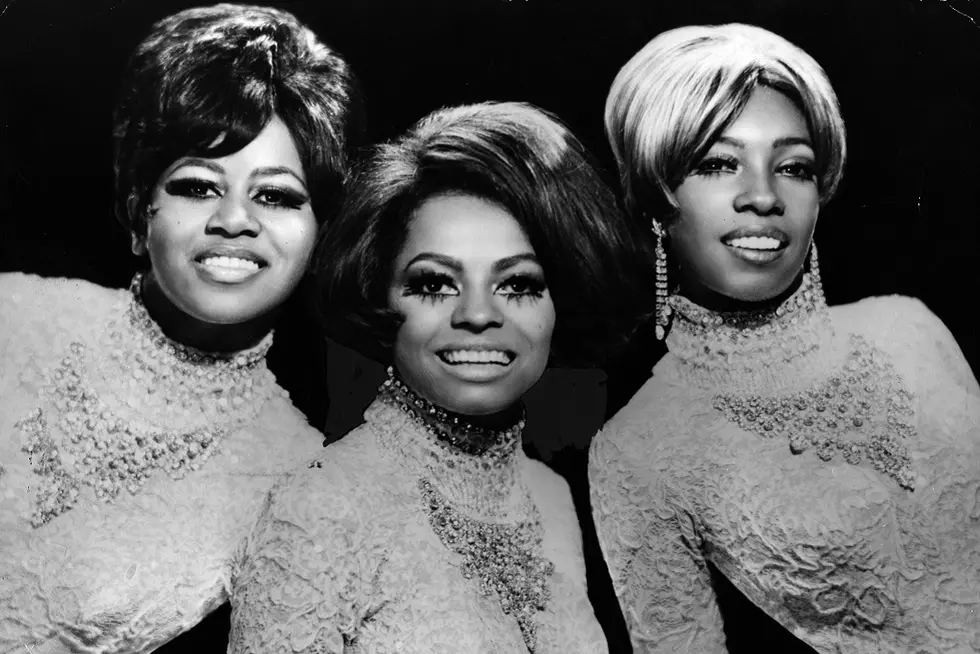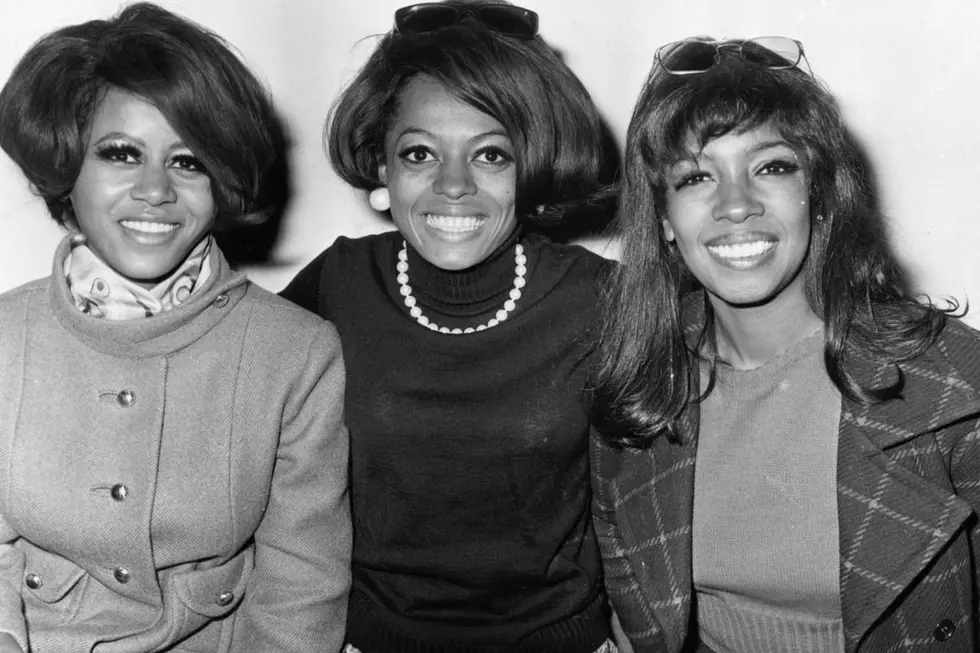25 Years Ago: Terence Trent D’Arby’s ‘Neither Fish Nor Flesh’ Undeservedly Flops
You remember Terence Trent D'Arby, right? The guy who unleashed that amazing barrage of hit singles back in 1987 -- 'Wishing Well,' 'If You Let Me Stay' and 'Sign Your Name'?
Ever wonder why he's not still ruling the charts with those seemingly effortless updates of classic soul styles? Well, it's because he fell victim to one of the biggest sophomore slumps in modern chart history with the release of his second album, 'Neither Fish Nor Flesh,' which came out 25 years ago this month.
Taken purely on its own merits, the album deserved a much better fate. Admittedly, it's sometimes needlessly pretentious, carrying the full title 'Neither Fish Nor Flesh: A Soundtrack of Love, Faith, Hope & Destruction,' and starting with two minutes of what can best be described as an ambient spoken-word piece before slipping into 'I Have Faith in These Desolate Times,' a "you'll love or hate this" largely a cappella piece adorned only by plucked classical string instruments and bongos.
But compared to its bright, polished and eager-to-please predecessor -- 'Introducing the Hardline,' which included all the hits mentioned above -- the album also features bold steps into darker, more diverse musical territory. For starters, there's the dazzling 'Roly Poly,' which finds D'Arby crooning and testifying over what sounds like a late-night tape-loop studio session attended by both the Beatles and Public Enemy's Bomb Squad.
Even more impressive is the next track, 'You Will Pay Tomorrow,' which finally answers the "What would it sound like if James Brown joined an amazing rock 'n' roll band?" question. Obviously feeling very confident in his creative choices, about halfway into this song D'Arby decides to add a very unusual instrument -- a kazoo! -- into the already potent wah-guitar and soul horn mixture. And damn if it doesn't work perfectly.
Hear Terence Trent D'Arby Perform 'You Will Pay Tomorrow'
There's also a handful of more accessible songs -- specifically, the rousing, gospel-tinged 'I'll Be Alright' and the slinky, insistent 'Attracted to You' -- that you could easily picture following 'Wishing Well' and the rest right up the charts. So what went wrong?
Well, D'Arby obviously was aiming to be something bigger than a flash-in-the-pan pop star with this album. But in retrospect, it seems pretty clear that it was his own ambitions and methods that tripped him up -- including a series of interviews that overshadowed his talent by earning him a reputation both in the public and within the music industry as an unsympathetic egotist.
For example, while promoting 'Hardline,' D'Arby ruffled feathers by stating, "I think I'm a genius. Point f---ing blank," and declaring that the record was better than the Beatles' masterpiece, 'Sgt. Peppers' Lonely Hearts Club Band.' No doubt this brashness turned off some of the very same potential fans D'Arby was hoping to reach with his later, more serious music.
Regardless, flush with the success of 'Hardline,' D'Arby not only turned in a challenging follow-up in 'Neither Fish Nor Flesh,' he reportedly demanded that his label not release any singles to promote the record. The strategy backfired, and 'Flesh' fell off the charts on both sides of the Atlantic within a month. Eventually, the suitably representative, if not immediately catchy, 'This Side of Love' was released as a single, but the damage was done and 'Neither Fish Nor Flesh' was dead in the water.
Surprisingly, years later, D'Arby decided this failure was the best thing that could have happened to him. "At the time of 'Neither Fish Nor Flesh''s non-performance in the marketplace -- I believe that's the expression -- every single thing hit me at once," he told Q magazine. "Legal situations, financial situations, the mother of my daughter and I were splitting up, everything. I was naked, I had no place to go. But now I genuinely feel that 'Neither Fish Nor Flesh' was not only the best thing that could have happened to me but the only thing that could have happened to me. If it had been successful, I would have missed that opportunity to get on the train that was pulling me out of the situation."
You're wondering what train he's talking about, right? Well, four years later D'Arby would issue his third and possibly best album to date, 'Symphony or Damn,' which successfully blended the accessibility of 'Hardline' with the experimentation of 'Neither Fish Nor Flesh.' However, the world at large had turned a deaf ear, and we found out exactly what D'Arby meant by pulling out of the situation.
Eager for a fresh start, after one more underwhelming album -- 1995's spotty 'Vibrator' -- D'Arby changed his name to Sananda Maitreya, moved to Europe and began releasing albums almost exclusively via his own website. His most recent effort is 2014's 'The Rise of the Zubebrian Time Lords.'
More From TheBoombox









